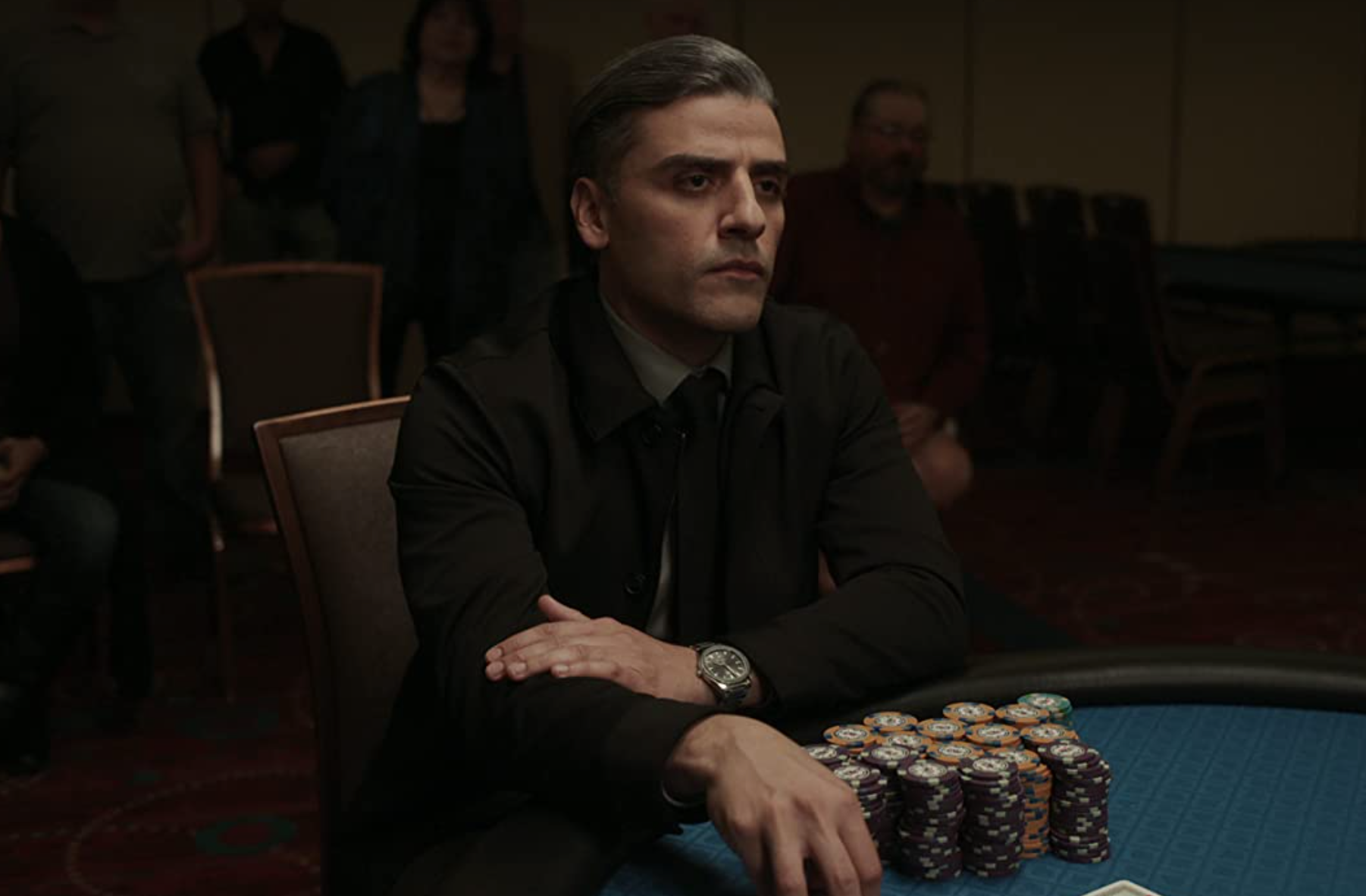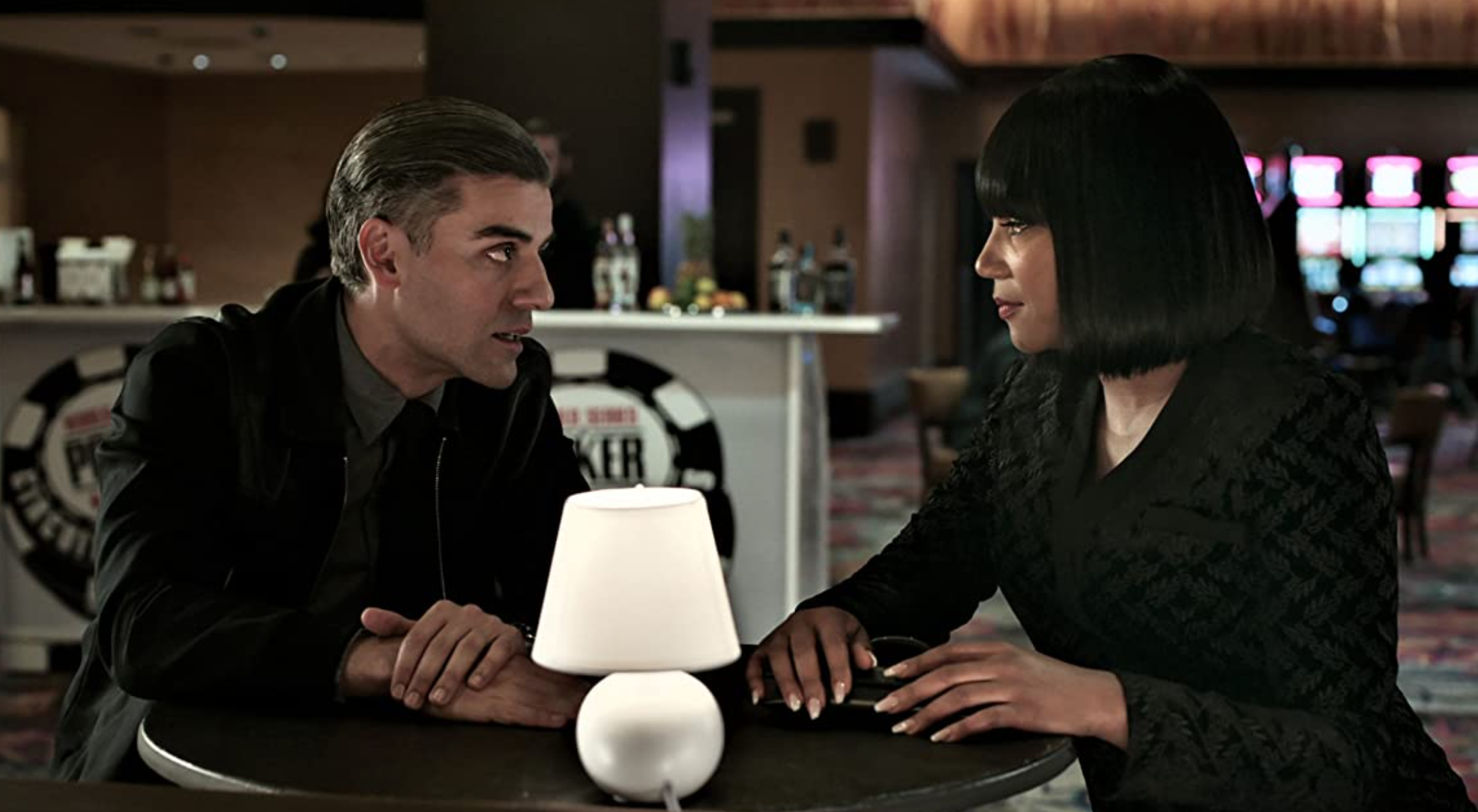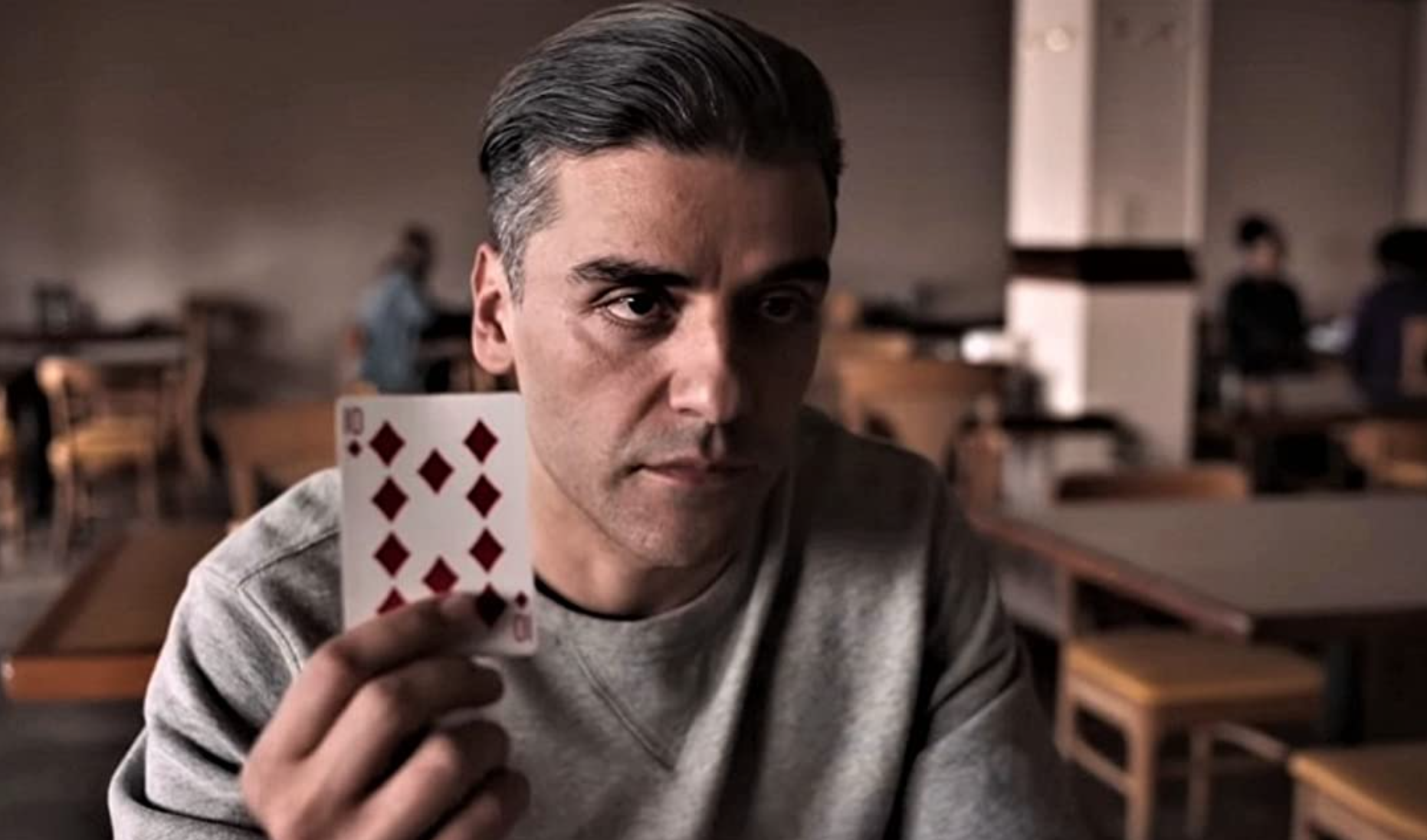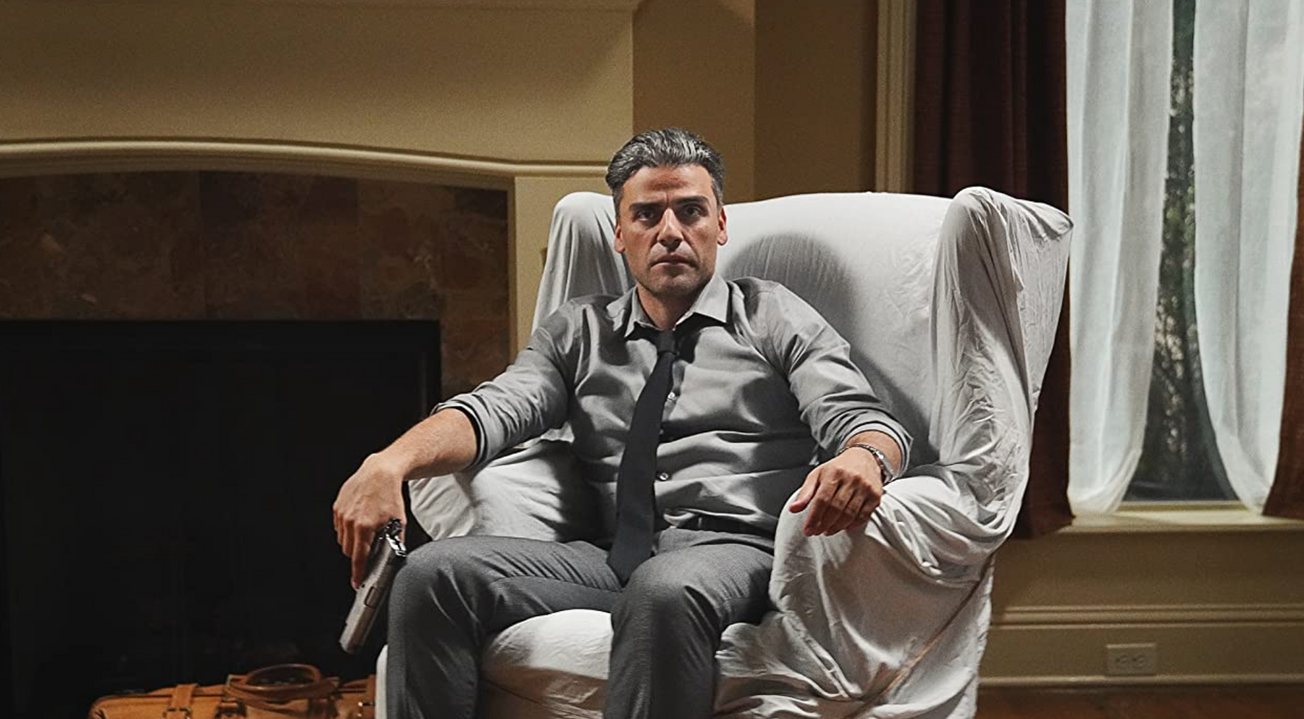By Jacob Collett, Psychology, Third Year
It feels like we can’t quite get enough of Oscar Isaac this year. His face seems to be everywhere – be it on the red carpet for Scenes From A Marriage, as Leto Atreides in Dune or here as the traumatised ex-con in The Card Counter. Career-defining performances like these are firmly cementing Isaac’s name among the Hollywood high-rollers, and this outing is certainly no exception - he (almost literally) murders this role. Yet, despite being spearheaded by cinema heavyweights Martin Scorsese and Paul Schrader, it’s hard to understand how this film manages to go so awry.

William Tell (Isaac) is a self-taught card counter who moves from casino to casino, cheating the system but staying under the radar. An ex-soldier, he runs a military operation, staying in motels, covering all the furniture in sheets, and living out of two suitcases. Although his past is shrouded in mystery, we pick up pieces through a series of prison flashbacks and VR-esque torture camp montages.
He maintains this soulless existence until he is confronted by Cirk Baufort, a young man who wants to capture, torture, and kill the General who put Tell behind bars and drove his own father to suicide.
Tell refuses to help him but decides to take him under his wing - in some strange form of mentorship - teaching Cirk to count cards to keep him out of trouble and teaming up with old acquaintance La Linda who runs a stable (an investor-backed gambling ring). The film follows this somewhat unconvincing narrative until Cirk decides to disobey Tell and all the horrors of his past are dug back up.

Isaac embodies this tortured character frighteningly well, with his hollow death-stare and unnaturally rigid posture from years of military conditioning that have made him immune to fear. The rich and claustrophobic cinematography has a hypnotic quality that, against your better judgement, forces you not to look away.
But while Isaac’s performance is elevated by the script, the two-dimensional writing of Cirk and La Linda lead to supporting acts that come across as slightly wooden and unconvincing, and even Willem Dafoe’s portrayal of the General manages to feel half-baked.
Somewhere around the halfway mark the film starts to lose its footing and at one point when Cirk states “I don’t know if it feels like it’s going anywhere,” nor do we. Is this a moral tale about redemption and wanting to change for the better or a gritty character study of an obsessed and tormented man? It feels as though the film was grasping for something profound about the depths of trauma but ended up just being a confusing and pointless mess.

The climax of the third act was gratuitously violent and showed no real character development, ultimately leaving us with a bitter taste in our mouths and more questions than answers.
For a film that tries so hard to ooze with darkness and intensity, the end-result is disappointing at best and unpalatable at worst.
Featured Image: IMDB
Will you be taking a gamble on The Card Counter?








